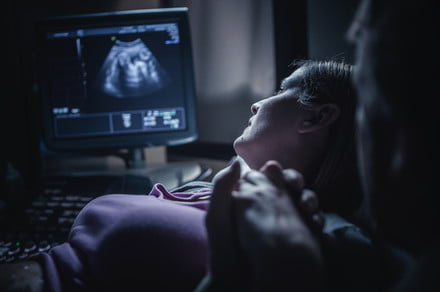In a world first, doctors have confirmed the birth of a healthy baby girl in Brazil using a womb transplanted from a deceased donor. While this isn’t the first time that a baby has been born using a uterus transplant, they are still very rare — with only 11 babies having been born in this way. This latest achievement opens up new possibilities for women with uterine infertility since it greatly expands the number of potentially available uteruses. Previously people had to rely on either close family or friends.
Infertility is more common than many people realize. Some form of infertility affects up to 15 percent of couples of reproductive age. Around one in 500 women have some type of uterine anomaly which makes it impossible to carry a child to term. Prior to uterus transplants, the only options available to would-be parents in this category was adoption or surrogacy.
While the research is only being published now, the baby was actually born on December 15, 2017. The womb donor was a 45-year-old woman who died as the result of a stroke that caused bleeding on the surface of the brain. Her uterus was removed and transplanted into a 32-year-old woman in an operation lasting 10.5 hours. The recipient had Mayer-Rokitansky-Küster-Hauser syndrome, a condition in which the vagina and womb do not form correctly. As part of the complex procedure, surgeons had to connect the donor uterus to the recipients’ veins, arteries, ligaments, and vaginal canal.
After five months, doctors were satisfied that the uterus would not be rejected by the body and that there were no resulting anomalies. Two months after this, fertilized eggs taken before the operation were implanted in the patient, who then became pregnant. The baby girl was born via cesarean section at just over 35 weeks.
Unlike the other recent childbirth-related scientific breakthrough — the apparent birth of genetically altered twin girls in China — this research is being greeted very positively. The hope is that not only will it enable wider use of potential donor wombs, but that it will avoid the risks associated with live donors.
A paper describing the work, titled “Livebirth after uterus transplantation from a deceased donor in a recipient with uterine infertility,” was recently published in The Lancet.
Editors’ Recommendations
- Drones can safely fly a human kidney without damaging it, study shows
- Drones can safely fly a human kidney without damaging it, study shows
- China goes full ‘Gattaca,’ delivers the world’s first gene-edited babies
- The best shows on Hulu right now (December 2018)
- Chinese doctors have reportedly delivered the world’s first gene-edited babies

